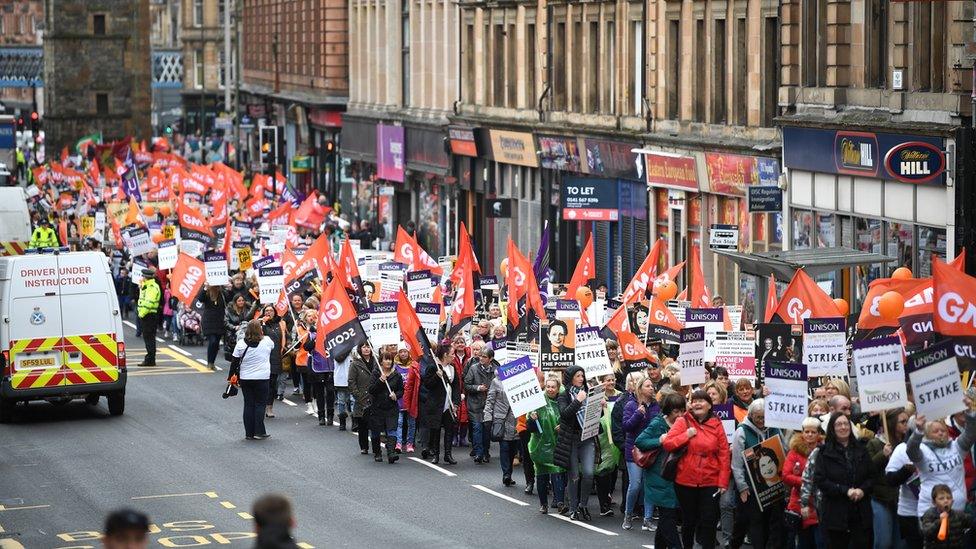Glasgow equal pay women shocked by legal fees on payouts
- Published
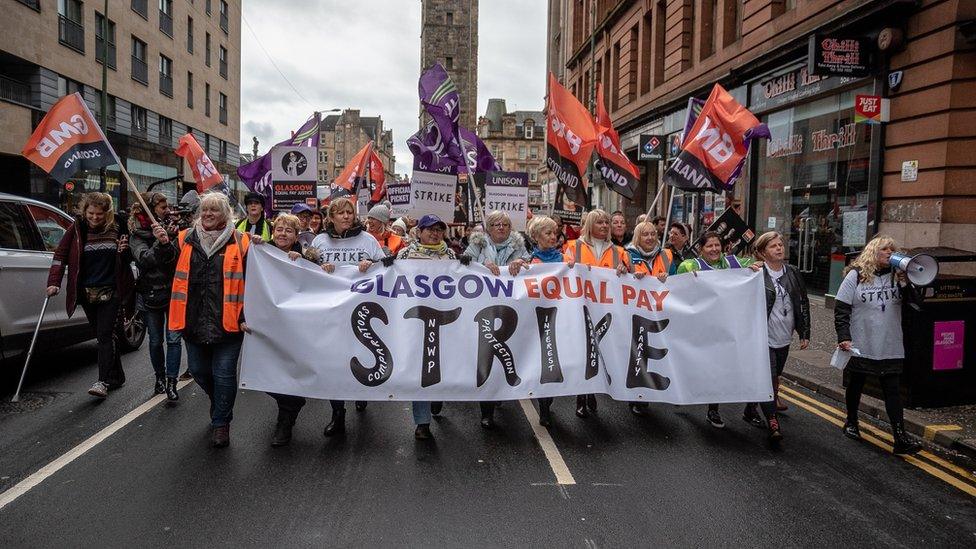
Thousands of council workers staged a strike over the dispute
Thousands of women who fought Glasgow City Council for equal pay have had money deducted to pay legal fees, despite pledges from their unions.
Members of Unison, Unite and the GMB were told they would get 100% of the settlement money offered.
But BBC Disclosure has seen legal documents showing "all claimants" have had fees "deducted".
The long-running dispute over women being paid less than men in jobs of the same grade was settled in January.
Glasgow City Council agreed to pay out a reported £548m to compensate the women for the money they should have been paid, in many cases going back to 2006 when the new job evaluation scheme was adopted.
The scheme was supposed to ensure that men and women received equal pay for jobs of the same value.
But instead, some traditionally female-dominated roles such as catering or home care ended up being paid up to £3 an hour less than male-dominated jobs such as bin lorry workers or gardeners.
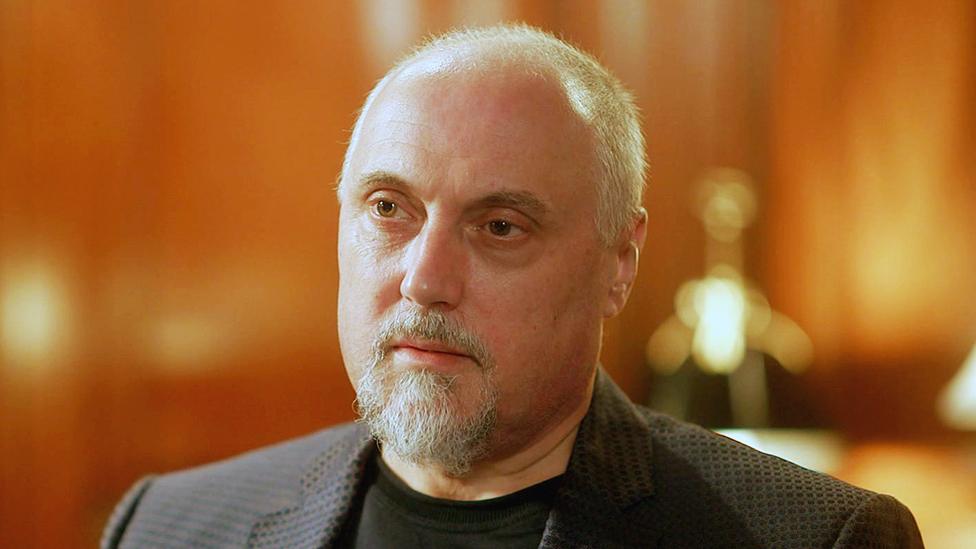
Stefan Cross was the claims lawyer who acted for the majority of the women
The majority of the 16,000 equal pay claimants were represented by private claims company Action 4 Equality, run by lawyer Stefan Cross.
Employment lawyer Carol Fox, who worked with Mr Cross on the Glasgow case, told BBC Scotland that the unions only began to put claims in for the women when they saw the success of claims companies, who were taking on councils and winning.
By the time of the settlement with Glasgow, Unison had dealt with 5,000 claims, while the GMB had more than 2,500 and Unite had 345 claims.
The unions promised members they would get all the money they were owed.
However, BBC Disclosure can reveal that, when Glasgow City Council finally conceded last year, the three unions - as well as Action 4 Equality - entered into a deal before negotiations began.
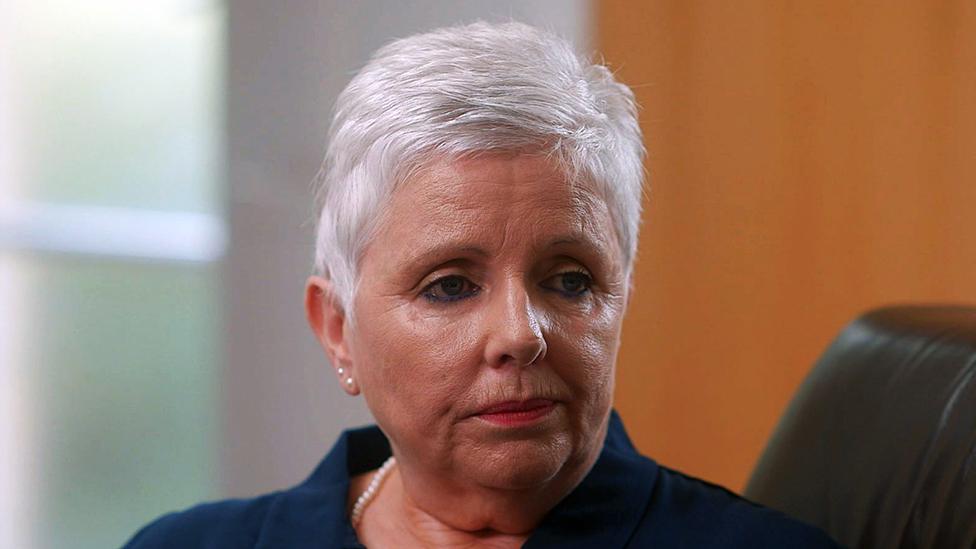
Employment lawyer Carol Fox said she was "troubled" by aspects of the settlement
As part of this deal, it was agreed that every claimant would have a percentage of the settlement offered by the council deducted in legal fees. This included those backed by their unions.
According to Stefan Cross 6.9% was deducted from "all the claimants", with a proportion being paid to his company, Action 4 Equality.
In his interview with the BBC, Mr Cross acknowledged the percentage deducted equated to "many millions" of pounds.
He said: "The unions' proposal was that we had to agree parity, to start with. The cost of that is that fees had to be paid somehow. And this is the most fair, most beneficial way for everybody that we did it on that basis."
The BBC understands none of the claimants represented by their unions were told they would be paying fees.
'Individual offer'
Under the terms of the settlement, none of the women are allowed to speak about how much they were awarded.
They were also not told the formula that was used to calculate their offer.
Each woman had an "individual offer" depending on how far back they were allowed to claim, how much they were underpaid per hour and how many hours they worked.
Ms Fox, who also worked on equal pay cases in North and South Lanarkshire, said she was "troubled" by aspects of the settlement.
She worked alongside Stefan Cross but left the company in 2015 and played no part in the final negotiations for the Glasgow settlement.
"That deal is very different from all the other settlements that we reached," she said.
"It doesn't appear to me that they've been told the detail of what they've paid. And who they've paid it to, and what it's been for."
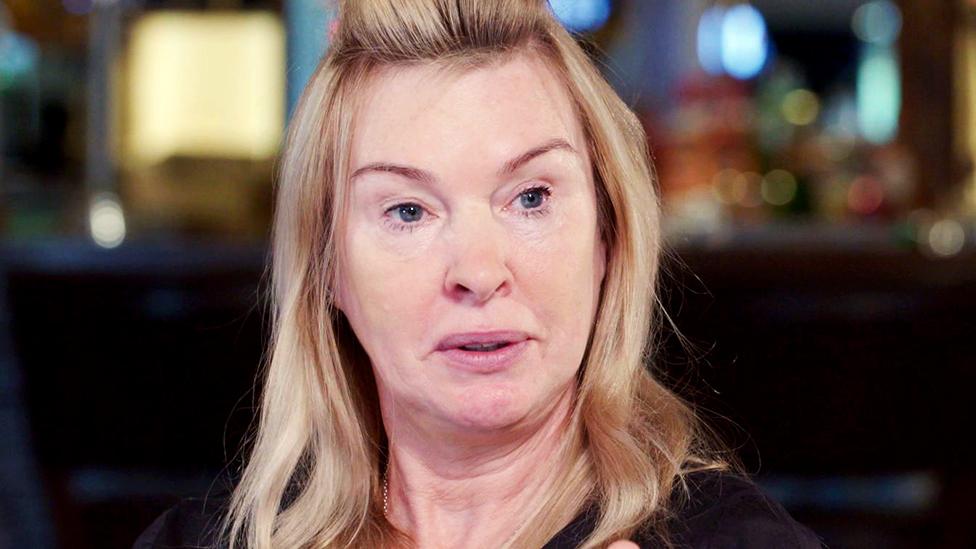
Audrey Masson worked as a home carer for 15 years but is receiving only five years of back-pay
All of the claimant organisations said their members or clients benefited from this deal and received higher offers by working together.
But Audrey Masson, a home carer represented by the GMB, said: "Nothing against Stefan Cross, why should we have to pay, because I never signed for him to represent me. I signed for the unions."
Helen Mitchell, a home carer represented by Unison, said: "I object to paying Unison, I certainly object to paying Stefan Cross. I would like my money back."
Mr Cross, the director of Action 4 Equality, said that by signing their settlement offers, claimants agreed to the terms.
He said: "Every single agreement includes a legal commitment to make that payment."
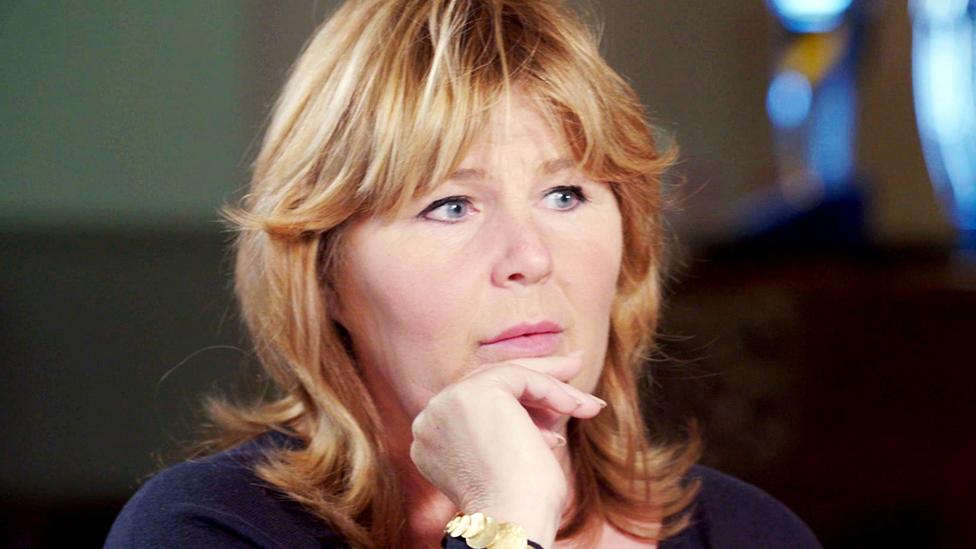
Helen Mitchell said she would like her money back
The unions said settlements were based on a "complex formula" and they could not discuss them because they were confidential.
As well as the legal fees, BBC Disclosure also discovered that potentially thousands of workers have missed out on claiming for the full extent of their discrimination.
Under Scottish law, workers who have been discriminated against are entitled to five years of back-pay if their case is successful. Because the pay dispute at Glasgow City Council has gone on since 2006, the maximum time period claimants can receive compensation for is 12 years.
Audrey Masson worked as a home carer for 15 years but is receiving only five years of back-pay. She alleges her union never told her to put in a claim.
She did eventually lodge a claim but too late to receive the full amount of 12 years of back-pay.
Ms Masson said: "We stood on the picket lines for equality, and we didn't even get it. Most of the people that stood on the picket lines didn't even know they were only getting five years."
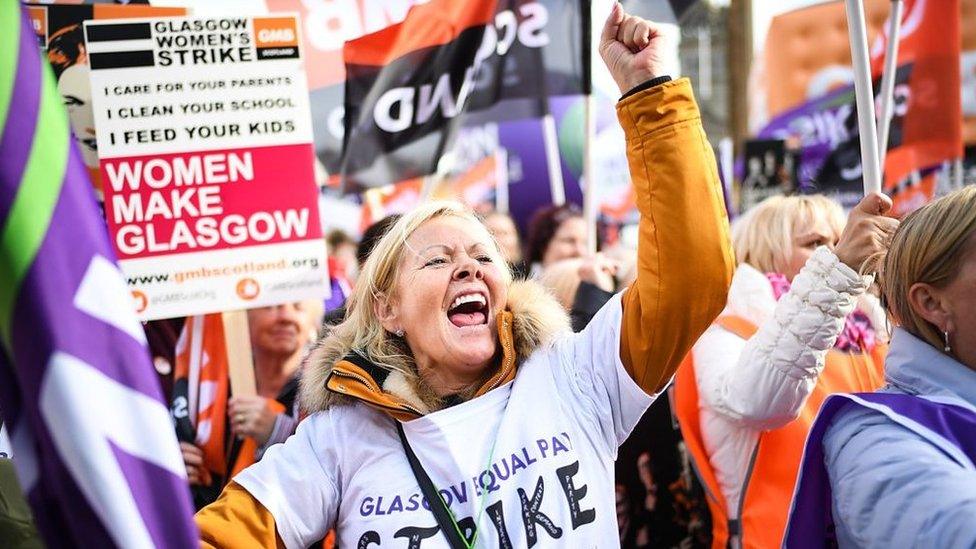
According to Mr Cross, thousands of claims were lodged too late.
He said it was a legal requirement that each individual must make their own decision as to whether they pursued a claim.
But he said: "It is undoubtedly the case that there was not a campaign by the trade unions in the early days to put in cases."
Mr Cross said: "You have half the women getting [the full] worth of claim, and the other half getting a maximum of five years of claim, because their claims were not put in at the right time."
Ms Fox, who worked on numerous council equal pay claims, said the unions were "conflicted" because they had a concern for the higher-earning male workers who were also members.
'Wrong legal advice'
There was a fear their bonuses and extra payments could be lost if they pushed for equal pay for women, she said.
The GMB union, which represented Ms Masson, denied that claims were put in late.
In an interview with the BBC, Gary Smith, GMB Scotland secretary, said: "We were given the wrong legal advice.
He added: "We did not pursue the same cases as the private lawyers, or indeed one of the other unions, but our members were not left at a detriment in the end."
Peter Hunter, Unison's regional manager, said the union was proactive in pursuing claims. He said: "Some union members and some employees generally missed out, because the system is individual. People need to consent to have somebody act for them, and they need to lodge a personal claim."
The third union involved, Unite, said it did not accept its members had been left "in any detriment by failing to support and submit early equal pay claims".

Disclosure: The Great Equal Pay Scandal can be seen on the iplayer.
Previous Disclosure investigations include:
- Published27 June 2019

- Published22 May 2019

- Published7 February 2019

- Published17 January 2019
